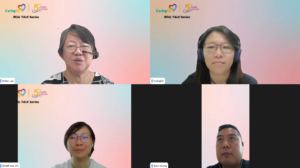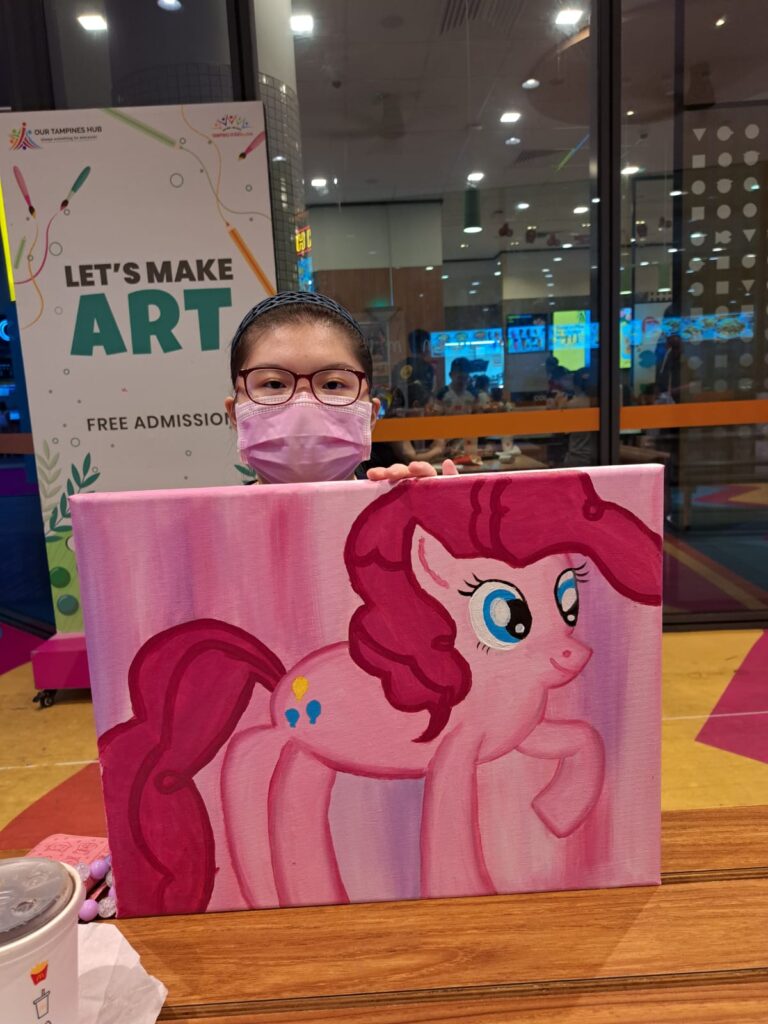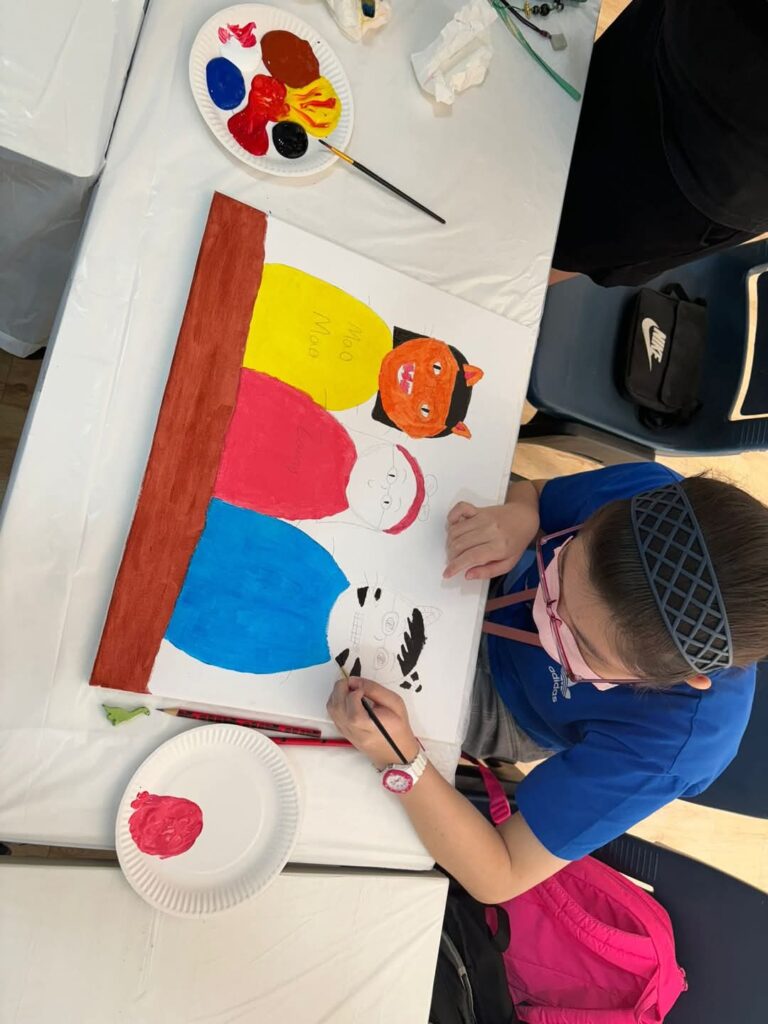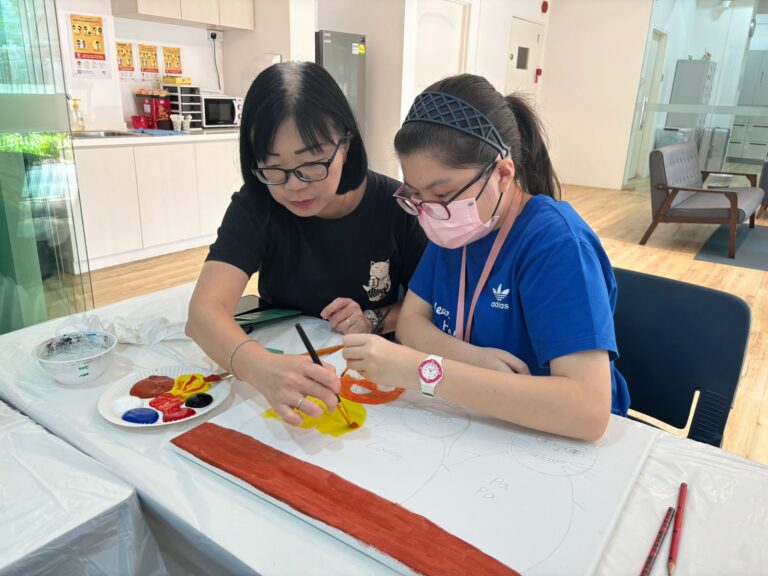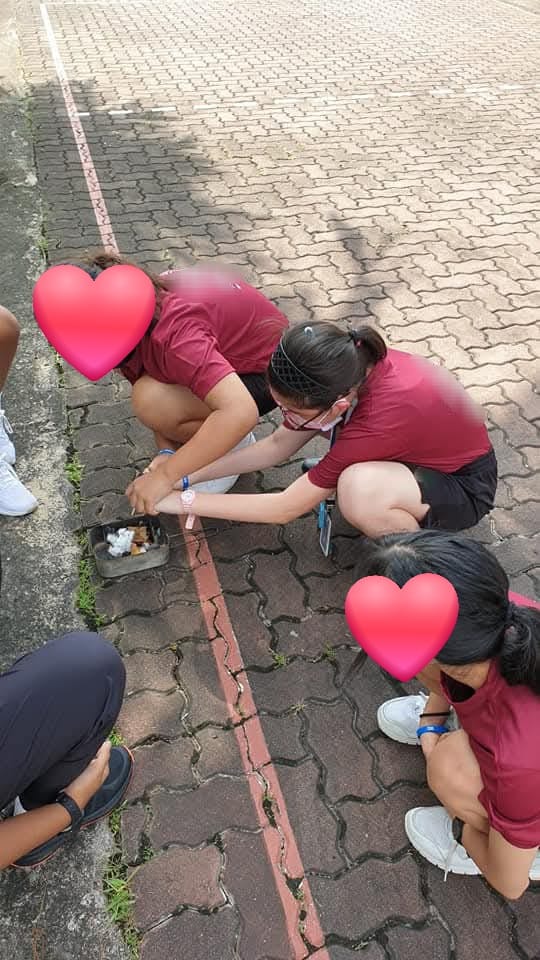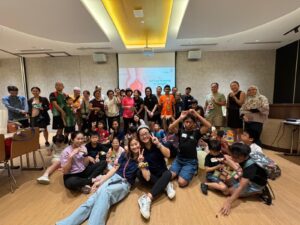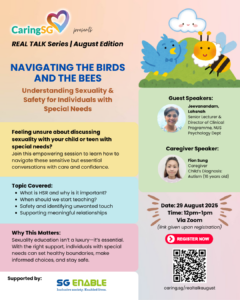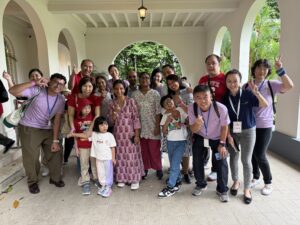I am sitting down to write this six days after I met Wendy, Mummy to an autistic daughter, over lunch. Looking at the notes I scribbled from our chat, the few words that popped up in my mind? ‘My learning journey’. This is Wendy’s learning journey as a caregiver.
Wendy’s daughter, Zoe, was diagnosed to be on the autism spectrum at the age of 3.
“I was just annoyed that her childcare teacher kept telling me there might be something wrong with my girl, so I brought her for a check, just to prove the teacher wrong. In the end, I had to thank her for spotting that my girl is different.”
A few months after receiving the diagnosis, she and her husband found themselves seated among other parents who also just learnt that they were going to parent an autistic child. It was a workshop for parents conducted by KKH.
“Everyone, all the parents around us, started tearing… some were crying. My husband and I were the only ones who did not shed a tear. In my mind, I was only thinking of ‘What’s next?’ “
Perhaps, it helped that at work, Wendy had just begun to come into contact with people with disabilities (PWDs) and was part of a team to make the workplace more inclusive. From her interactions with them and their job coaches, she learnt that PWDs are not disabled; they are able and can find work when given the right support. With that valuable insight and belief as the cornerstones for parenting Zoe, she started to take on every parenting challenge as part of her learning journey on how to give her daughter a supportive environment to grow.
She shared one of her most memorable moments when Zoe was in Primary 1. Out of frustration and stress from work, she screamed at Zoe and flipped the small table that she used for her therapy and school work. Her husband’s response, “Don’t vent your stress on our girl”, drove home a fundamental lesson she had to learn.
“I can change my work, let go of the high stress from work, but I can’t change my girl. I asked God for her; she’s God’s gift to me. I cannot change her and I cannot let go of her. I was very career-minded before, but I learnt that I had to let go of my career aspirations, to take a reduced role, because my girl needed me more.”
Even with the help of tutors and understanding teachers, supporting Zoe through school work remained challenging as the pace in the mainstream school was fast and intense. There was no time to catch a breather. Inevitably, that posed much tension in their interactions. In the second semester of Primary 5, Wendy decided to opt for Foundation Level for all the four subjects Zoe had to sit for in the PSLE. That was a decision that went the opposite of what her school teachers recommended, but also the decision that improved their relationship. Zoe was able to learn at a pace more suitable for her and Wendy was able to slow down and better understand how Zoe learns differently from her peers. For example, Zoe would mentally shut down if she’s pushed beyond her comfort zone; art and craft work is her way to chill and also manage stress.
